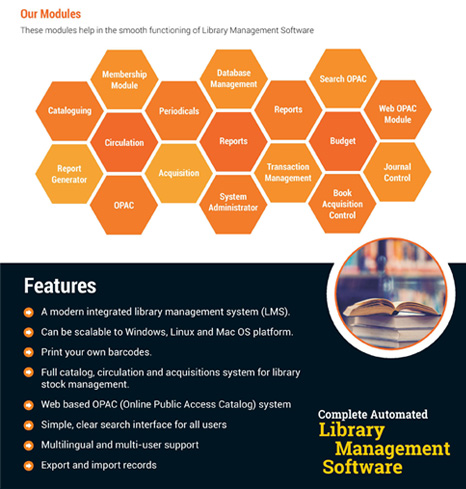Library Automation
Library Automation refers to the use of computer to keep track of all the books that are issued, returned and added in the library. Library Automation is another name of Library Management System. It is a user friendly system. It is created to ensure the proper management of books in a library.
In library automation we can store all information consists of book numbers, author name, rack detail, book titles and much more. It makes issue and returning process easy. It provides the search function which helps the students in searching of any book in the library.
LMS is among the best library management software available in the market. It is a complete automated library management system that supports full cataloguing, circulation and acquisitions system for library stock management. It also provides the facility to generate customized report for library items, library inventory and library fine collection. So, it can be said that LMS is a modern and integrated solution to the traditional way of running a library.
LMS is a modern integrated library management system which can be scalable to Windows, Linux and Mac OS platform. The user can print their own barcodes and it provides full catalogue, circulation and acquisitions system for library stock management.
